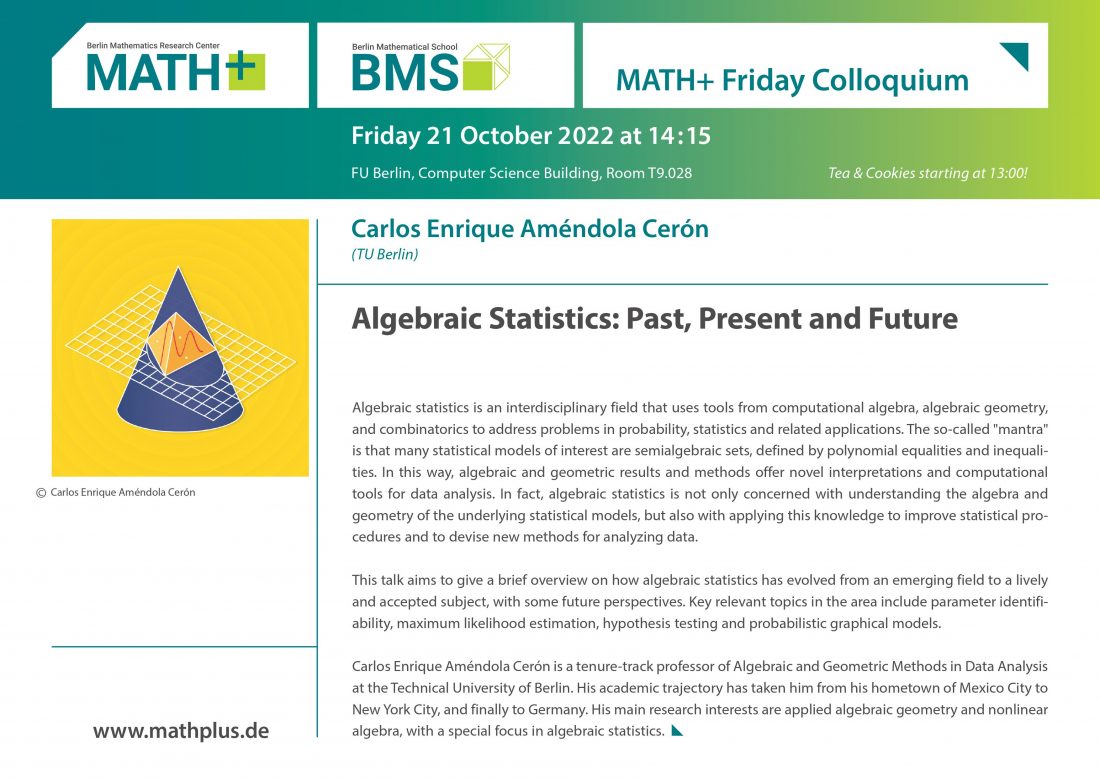21 October – Carlos Enrique Améndola Cerón: Algebraic Statistics: Past, Present and Future
Algebraic statistics is an interdisciplinary field that uses tools from computational algebra, algebraic geometry, and combinatorics to address problems in probability, statistics and related applications. The so-called “mantra” is that many statistical models of interest are semialgebraic sets, defined by polynomial equalities and inequalities. In this way, algebraic and geometric results and methods offer novel interpretations and computational tools for data analysis. In fact, algebraic statistics is not only concerned with understanding the algebra and geometry of the underlying statistical models, but also with applying this knowledge to improve statistical procedures and to devise new methods for analyzing data.
This talk aims to give a brief overview on how algebraic statistics has evolved from an emerging field to a lively and accepted subject, with some future perspectives. Key relevant topics in the area include parameter identifiability, maximum likelihood estimation, hypothesis testing and probabilistic graphical models.
Carlos Enrique Améndola Cerón is a tenure-track professor of Algebraic and Geometric Methods in Data Analysis at the Technical University of Berlin. His academic trajectory has taken him from his hometown of Mexico City, to New York City, and finally to Germany. His main research interests are applied algebraic geometry and nonlinear algebra, with a special focus in algebraic statistics.


